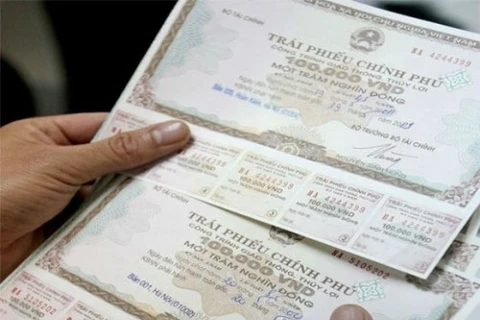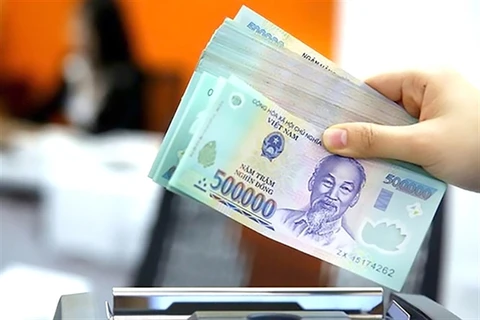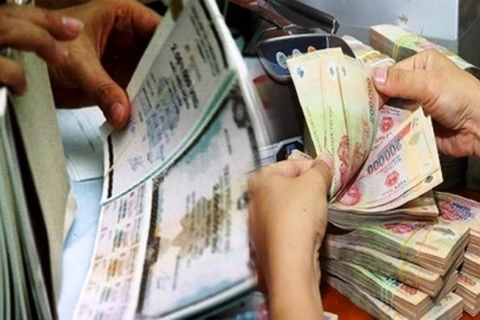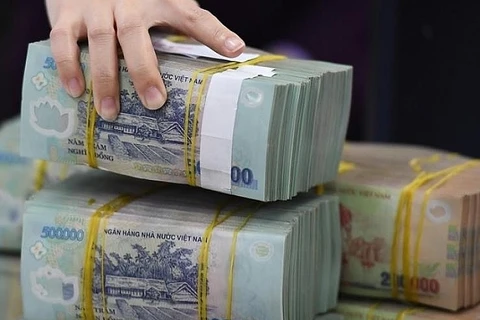Hanoi (VNS/VNA) - The Government has assigned the Ministry of Finance to study a proposal to allow the State Bank of Vietnam to guarantee payment of bank bonds, just like with bank deposits.
This Government move comes after the Vietnam Association of Financial Investors (VAFI) sent documents to the Prime Minister, the Ministry of Finance, and the State Bank of Vietnam to propose solutions to increase long-term capital mobilisation for the economy when deposit interest rates plummet.
VAFI recommends that it is necessary to build risk-free bonds, whose interests and principals are guaranteed to pay on time in all situations, but may still be slightly affected by inflation and devaluation of the Vietnamese dong.
This type of bond must be issued by a qualified bank listed on the Ho Chi Minh Stock Exchange (HoSE). And there should be more standards required for these bonds, such as relative profit margin, low bad debt ratio, and the State needs to regulate the rate and volume of bond issuance for individual investors.
VAFI argues that the above-proposed regulations should be put in place to ensure that, in all cases, commercial banks are able to pay interest and principals of bonds to individual investors.
According to the association, this solution is necessary because banks have difficulty in mobilising long-term deposits - over 1 year - despite high deposit rates. The cause is that investors fear risks about exchange rates, inflation, macroeconomic fluctuations and low liquidity. When needing to withdraw long-term deposits, investors must accept the loss of interest savings.
If the State Bank guarantees these bonds, VAFI believes that a huge amount of money will be poured into bank bonds because people seek higher interest rates in bonds rather than short-term deposits, the association said.
In addition, this agency recommends that risky bonds should not be issued to individuals but only to organisations because they have investment experience, which helps them assess the risk level of bonds./.
This Government move comes after the Vietnam Association of Financial Investors (VAFI) sent documents to the Prime Minister, the Ministry of Finance, and the State Bank of Vietnam to propose solutions to increase long-term capital mobilisation for the economy when deposit interest rates plummet.
VAFI recommends that it is necessary to build risk-free bonds, whose interests and principals are guaranteed to pay on time in all situations, but may still be slightly affected by inflation and devaluation of the Vietnamese dong.
This type of bond must be issued by a qualified bank listed on the Ho Chi Minh Stock Exchange (HoSE). And there should be more standards required for these bonds, such as relative profit margin, low bad debt ratio, and the State needs to regulate the rate and volume of bond issuance for individual investors.
VAFI argues that the above-proposed regulations should be put in place to ensure that, in all cases, commercial banks are able to pay interest and principals of bonds to individual investors.
According to the association, this solution is necessary because banks have difficulty in mobilising long-term deposits - over 1 year - despite high deposit rates. The cause is that investors fear risks about exchange rates, inflation, macroeconomic fluctuations and low liquidity. When needing to withdraw long-term deposits, investors must accept the loss of interest savings.
If the State Bank guarantees these bonds, VAFI believes that a huge amount of money will be poured into bank bonds because people seek higher interest rates in bonds rather than short-term deposits, the association said.
In addition, this agency recommends that risky bonds should not be issued to individuals but only to organisations because they have investment experience, which helps them assess the risk level of bonds./.
VNA
























